Well-Being & Ecology _|_ Issue 7, 2017/18
A BIOLOGY OF WONDER
An interview with scientist Andreas Weber, whose radical ideas about identity, connectedness and the importance of love, are transforming our understanding of nature
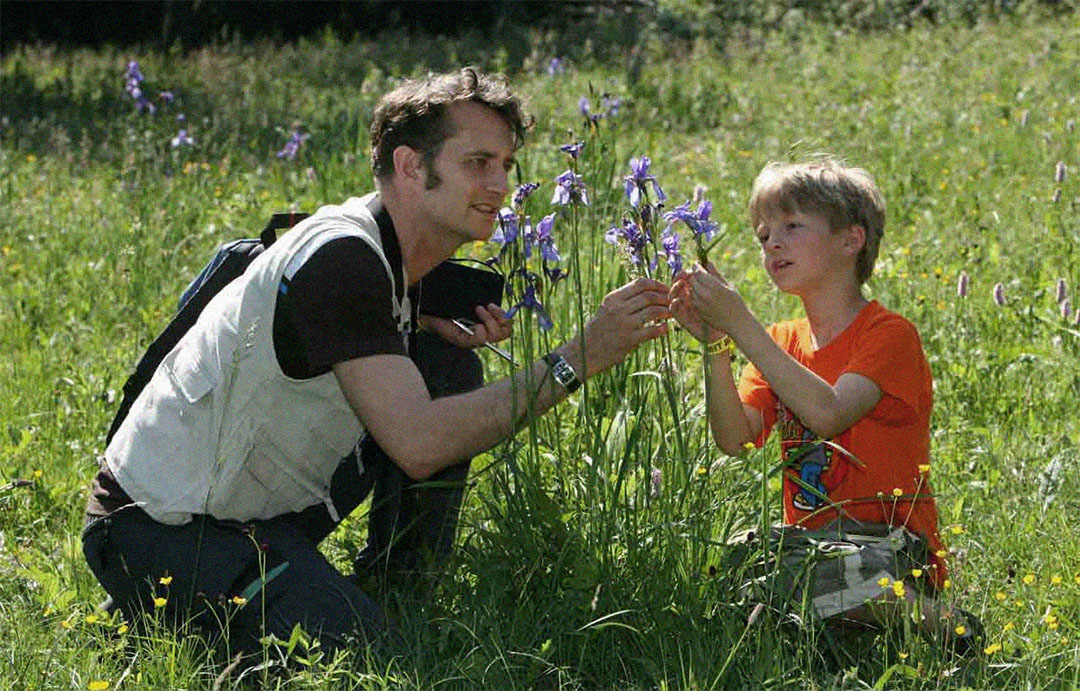
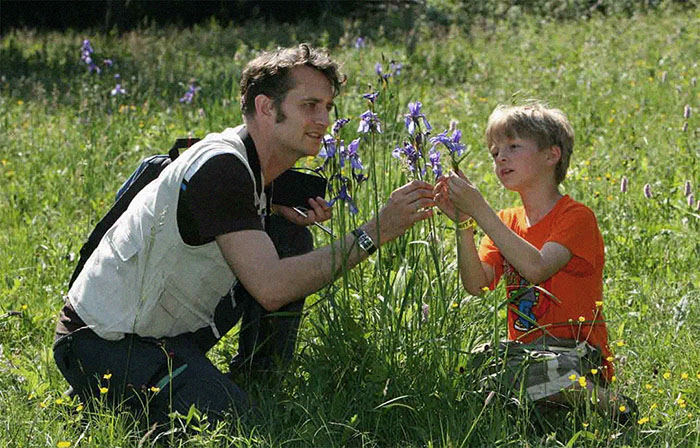
A BIOLOGY OF WONDER
An interview with scientist Andreas Weber, whose radical ideas about identity, connectedness and the importance of love, are transforming our understanding of nature
Andreas Weber is a Berlin-based philosopher, biologist and writer, who teaches philosophy at Leuphana University, Lüneburg, and at the University of Fine Arts, Berlin. He holds degrees in Marine Biology and Cultural Studies, and during his studies collaborated with the pioneering biologist and brain researcher, Francisco Varela. His books in English include ‘The Biology of Wonder: Aliveness, Feeling, and the Metamorphosis of Science’ (2016), and ‘Matter and Desire: An erotic ecology’ (2017). In this interview with David Hornsby, he argues for a radical non-dualistic understanding of nature, at the heart of which lies the desire of all living things – from the simplest cell to the human being – to connect with each other in a process of mutual transformation.
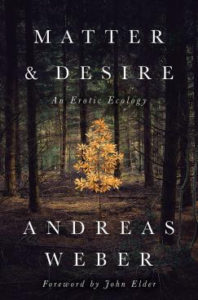 David: You have written more than eight books which have been published in Germany, but it is only very recently that any of them have become available in English. Could you begin by explaining the main themes that you have been developing?
David: You have written more than eight books which have been published in Germany, but it is only very recently that any of them have become available in English. Could you begin by explaining the main themes that you have been developing?
Andreas: What I am trying to do in all my work is to get away from the understanding of what we have been calling ‘nature’ as an object. This understanding causes a split within us between that which is seen as ‘not nature’ – meaning spirit, humanity or culture – and nature which, in the modern scientific view, is basically regarded as a machine. So I am trying to find a different way of understanding ourselves which overcomes this dualism.
Another central idea is that exchange or transformation between the participants is a deep feature of ecological systems – the first principle, really, of ecological reality. In my view, ecology is all about relationship. But when I say relationship, I do not mean the kind of connection which is joining one dot with another, but the type of interaction which involves an exchange or transaction which changes one or both of the parties. A simple example of this is the formation of water from hydrogen and oxygen. Water has totally different properties from either hydrogen or oxygen when they are alone, and so, through their bonding, something comes into being which was not known before.
These two themes of non-dualism and relationship come together, in that I am trying to get at an idea of reality as a continuous construction of identities through transformation. It is important to emphasise that I am not trying to create the kind of non-dualistic understanding where things are seen as uniform. It is clear that we live in a world in which there are a great many differences between things, and it is absolutely crucial to take this into account. You could say that it is existentially important, as this is the way that we actually experience the world.
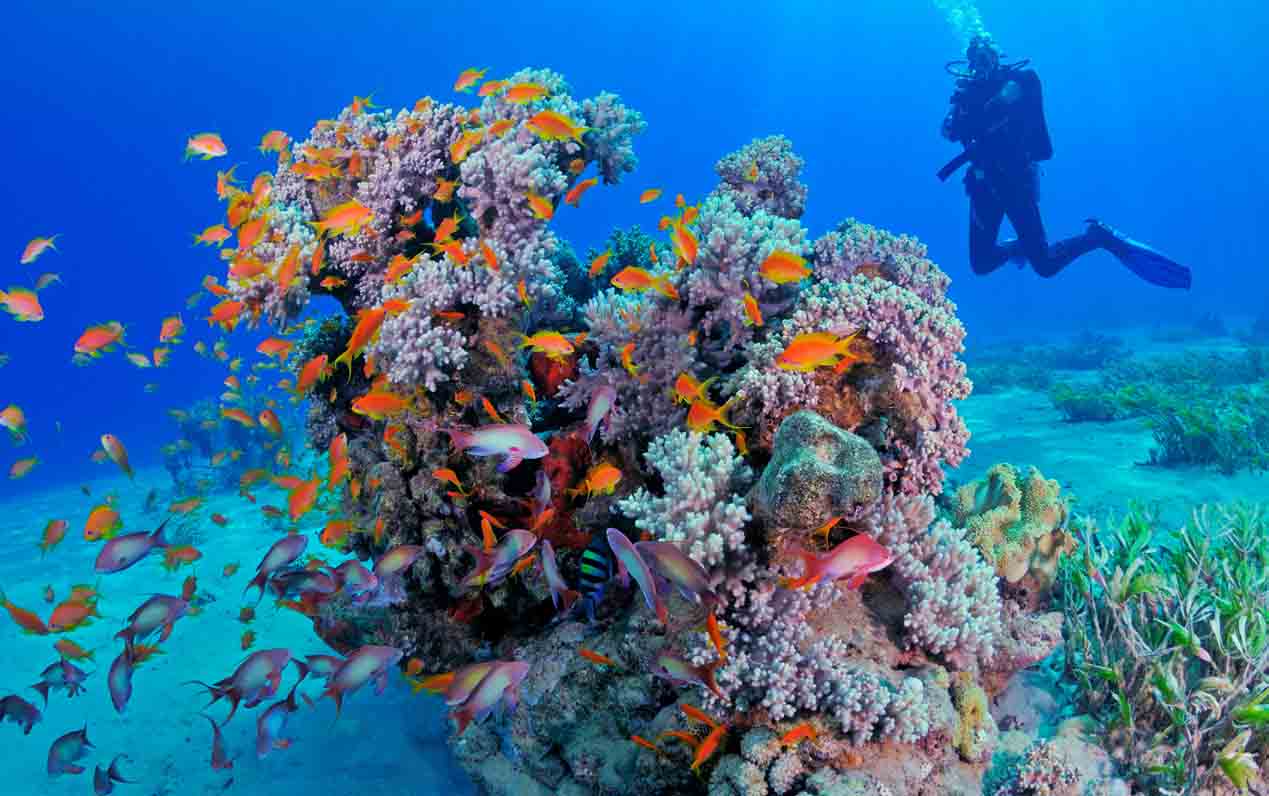
Biodiversity; the unique ecology of the coral reef, Nuweiba, “The Red Sea”, Sinai, Egypt. Photograph: Charles Stirling (diving)
David: You have talked about the need for a transformation in our own understanding in order to get away from dualistic ways of seeing, which seems to be very deeply embedded in us. How do you see this?
Andreas: At this moment in cultural history, dualism is being questioned in many different spheres. In biology and ecology, it is particularly being challenged because of the idea of the Anthropocene [/] which is becoming more and more established. We now know that there are human traces everywhere in nature, and this naturally leads us to question whether the human world and the natural world are really two separate things. So there is an open door to rethink standard philosophical positions.
I basically challenge the idea that we are subjects – closed agents – living in a world which is separate from us and which we can manipulate. Within this context, we may treat this outside world nicely or badly, but the essential thing is that we see it as separate from us. By contrast, in my view every subjectivity or individuality is seen as an ‘inter-subjectivity’, or an ‘inter-being’. This is because to be an individual is already to be totally dependent upon other things which come from outside us – such as food, which will construct our body, or recognition, which will help us to experience ourselves as a whole in our psychological identity. To see ourselves as individual agents acting in a world which is independent of us is to my mind not only a flawed perspective: it is a toxic state, because it leads us to do things which are damaging to productive sources of aliveness as we just don’t see them.
David: Are you talking about this in a biological context, or a philosophical one?
Andreas: I am trying to do both – and at the same time, I want to talk in a personal context by telling stories about my life. You could say that I talk about it in an applied psychological context. In my latest book, which has just been published here in the UK, there is a whole chapter on the building up of identity by being “seen by our parents” – a phrase I believe comes from the English psychiatrist, Donald Winnicott. If this does not happen, then we won’t build up a stable identity – we will always need something from the outside which you will never really get.
So I am trying to challenge conventional views on all levels. But as a biologist, I start with, classically, what we would refer to as the ‘low’ levels, by talking about matter and physical processes. The basic question that I ask is: why is there is a tendency in matter to form more and more complex agglomerations? Why is hydrogen yearning to bond with oxygen? We can see that, given the right conditions, they just cannot wait to mate. And when they do, what emerges shows them something about their own potential which they did not know was there before. So there is a paradox here: on the one hand, entering into relationship means giving up self-identity – a dissolving of individuality. On the other hand, what comes out of it is a deepening of the sense of identity, an increased individuality. I am attempting to write an ecology from this standpoint.
David: Hence the title of your new book, Matter and Desire, which you have subtitled An erotic ecology?
Andreas: Yes, it is such an obvious innate tendency for things to desire contact with one another and, by this, to transform each other. One of the things I was amazed to find when I was researching the book is the extent to which this is about physical touch. Whether this is the touch of a light wave upon the retina, or a human being stroking the skin of their beloved, or a nerve cell sending out an impulse by spilling calcium atoms – every contact leaves behind traces which change all the parties involved. So this is not just an imaginative vision; it is about our direct experience of the world. It is what we are running into all the time.
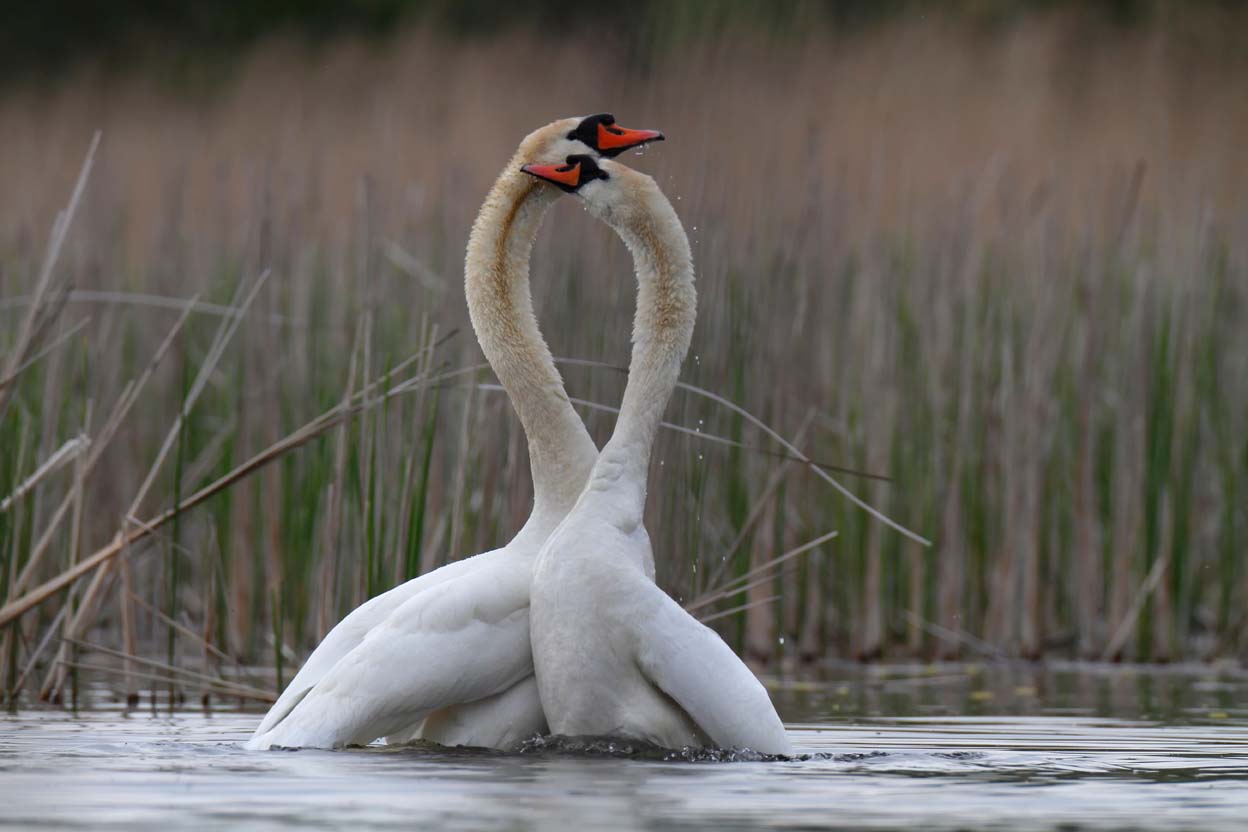
The desire for connection: mute swans intertwining their necks during a mating dance, Mecklenburg-Western Pomerania, Germany. Photographer: Volker Lautenbach
Life and Self-Identity
David: Can you say more about this matter of ‘self-identity’? How does this apply at this ‘low’ level of matter, which we don’t generally think of as having either consciousness or the capacity for things such as desire and pleasure?
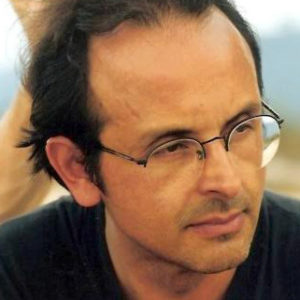 Andreas: The basic idea is that a living being – an organism – is fundamentally a meaning-creating centre. So creating meaning is the physics of the organism. This takes us away from the idea that an organism is a machine, or that we are big machines because we are big organisms. My theory builds on the insights of my teacher, Francisco Varela [/], who, together with his colleague Humberto Maturana, decided in the 1970s not to follow the predominant trends of biology at the time, which was focusing on genetics, but decided to look at what the cells are actually doing. Genes are just a part of this, although of course a very important part in terms of cellular metabolic regulation.
Andreas: The basic idea is that a living being – an organism – is fundamentally a meaning-creating centre. So creating meaning is the physics of the organism. This takes us away from the idea that an organism is a machine, or that we are big machines because we are big organisms. My theory builds on the insights of my teacher, Francisco Varela [/], who, together with his colleague Humberto Maturana, decided in the 1970s not to follow the predominant trends of biology at the time, which was focusing on genetics, but decided to look at what the cells are actually doing. Genes are just a part of this, although of course a very important part in terms of cellular metabolic regulation.
The great insight of Varela and Maturana was that the cell is in a process of creating an identity. What it is doing physically is building up a border against something which surrounds it. This ‘something that surrounds it’ is no different from it, because it is made of stuff, just as the cell is made of stuff, but the cell is organised in such a way as to regulate the exchange with the outside world. A cell membrane is a border, but it is also an entrance, so it is a very interesting kind of border – a kind of wall which is a door. When you watch this process through a microscope, you realise that even though this is at a very material level, it is all about self-identity. The cell constantly strives to keep itself as a cell, and that is the main work that it does. In our case, as human beings, 97% of the energy we use is taken up just maintaining ourselves as ourselves – in just being a warm-blooded animal sitting somewhere. Varela called this process of an organism keeping itself as itself autopoiesis [/], from auto, meaning of itself, and poiesis, meaning creation or production.
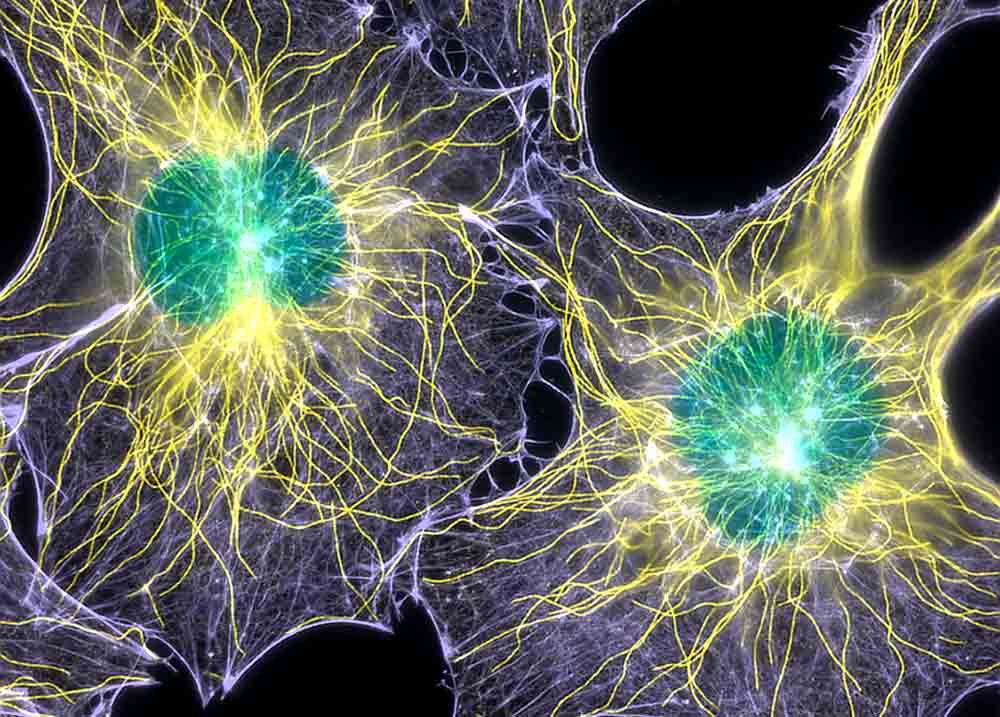
Cells under the microscope, showing the outer membrane, the cytoplasm and the nucleus. Photograph: www.xtlearn.net
The notion of self and other is already there in autopoiesis, because in the process of maintaining itself the cell has already made a distinction between itself and other things; the cell membrane excludes ‘other’. My add-on to Varela’s work is the understanding that if your activity is largely about maintaining yourself as yourself, nothing that comes from the outside is neutral in any way. It is either good – meaning that it is food, or air, or warmth, or energy, or a mating partner – or it is bad because it is somehow trying to destroy you, or it is too hard or too hot, or whatever. If it has no effect upon you, then it will be invisible to you. So you already have meaning emerging at this level.
With this strange new view – although not so ‘new’ perhaps, because Varela came up with the idea of autopoiesis nearly forty years ago, but new in the sense that the idea is not yet common currency – every cell can be seen as a centre of self-identity. When you add the notion of meaning onto this, the whole realm of biology becomes something totally different.
David: How does this differ from the Darwinian idea of the survival of the fittest? In that view, the individual organism is trying to survive and adapt to its conditions, and therefore is in constant interaction with its environment.
Andreas: People like Varela and myself are talking about individuals and what is happening on the level of the cell, whereas Darwin is talking about species in the course of history. Autopoiesis is not at all about the struggle for survival; it does not require any kind of pressure or competition to occur. It can be seen rather as a way of arranging matter, which could be arranged in other ways. And actually it has a huge tendency to be arranged in other ways, because everything tends towards entropic equilibrium. Therefore, matter really just wants to lie somewhere and not be organised in an organism, because that is in many ways too ordered for it. So it is somehow against the tendency of matter to behave like this; but it is not so antagonistic to it that it cannot happen.
The important thing is that once the process of autopoiesis comes into play, we have a very strange relationship between what is inside the cell and what is outside. What is outside needs to be excluded, but at the same time it is needed because the cell needs additional matter and energy to survive. So we have an interesting situation, which is essentially a paradox; the living being needs that which means the end of it as an individual self. Therefore, we have a primordial transformative relationship right at the very foundations of life.
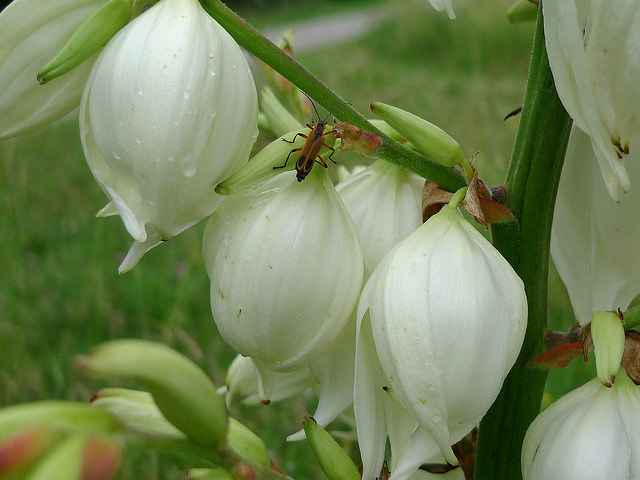
Mutuality: the yucca tree and the yucca moth are totally dependent upon each other. The yucca can only be pollinated by the yucca moth, and in turn, its seeds provide food for the moth’s larvae. This unique symbiotic relationship has already lasted for 40 million years. Photograph: DM on https://statesymbolsusa.org/symbol-official-item/new-mexico/state-flower/yucca
Life and Community
David: One of things which comes out of these ideas is the mutual dependence between the self and ‘other’ – meaning, the external world. In Matter and Desire, you say: “In biology, every ‘I’ has been enabled by a ‘we’. The whole is present to us as a constant and ineluctable part of the self.”
Andreas: One of the things that I have tried to do in my work is to understand our reality as a ‘commons’ – to see the whole of reality as a shared process of mutual transformation and productivity. This term ‘“commons” [/] has been coined to express the idea of shared culture and resources being accessible to all members of a community. I use the term because being alive means that we are always participating in community, and continually reinventing ourselves as part of a vast – immeasurable – network of relationships.
David: You go on to argue from this principle of mutuality that the foundation of all life is love. You say that you are rewriting ecology as “a tender practice of forging relationships” and maintain that “being alive is an erotic process”.
Andreas: Yes. All the time I am trying to understand why individuality is so needy of ‘the other’, and what is the role of ‘the other’ for the self. At the moment, the idea I find most convincing is that in order to flourish as a self means being able to grant space to ‘the other’. And that would be a definition of love. But this is love not as a feeling but as a practice of creating productive relationships in a commons of reality. So there is a fundamental aspect of the practice of love embodied in ecosystems due to the principle of mutuality [/].
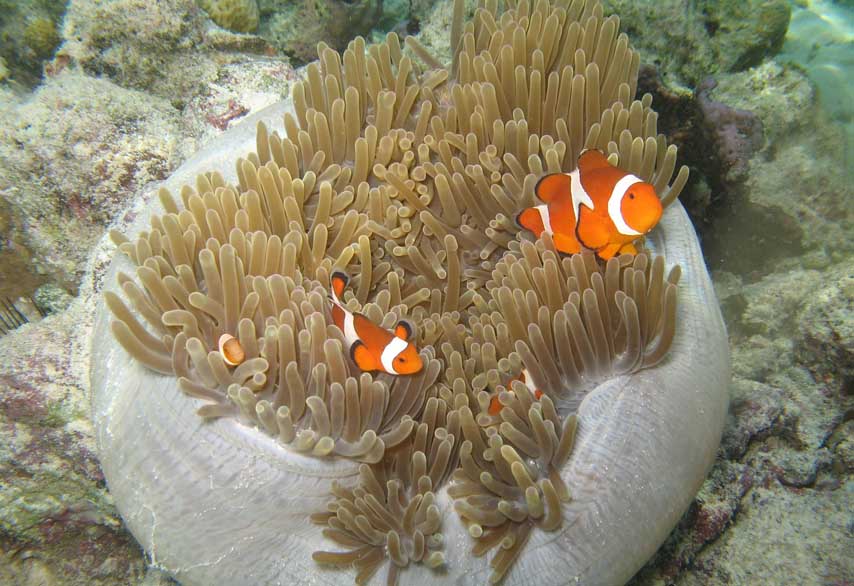
Mutuality: clown fish and sea anemones are a classic example of mutualism. The fish has developed immunity to the poison in the anemone tentacles, which are lethal to other species. They drive off predators and parasites which threaten the anemone, and the anemone’s tentacles in turn protect the clown fish from its predators. Photograph: Carolina Mariani
I am talking here from a biological aspect, but I also keep in mind that this is something which we don’t only observe in the external world. It is something we are all participating in; we experience it. In moments when I myself feel a sense of trust and happiness, of connectedness, it has a lot to do with being in contact with myself through being in contact with others. The most important moments of our lives take place in this kind of context. By ‘others’ we can mean other human beings, or it can be ‘the world’, or a rock; but it is always a profound experience of otherness which I open up space for. And this then makes me more myself.
As a biologist, I have come to the conclusion that it is intrinsic to life to create the experience of self through connection. What is the difference between this and saying that there is an intrinsic yearning to love?
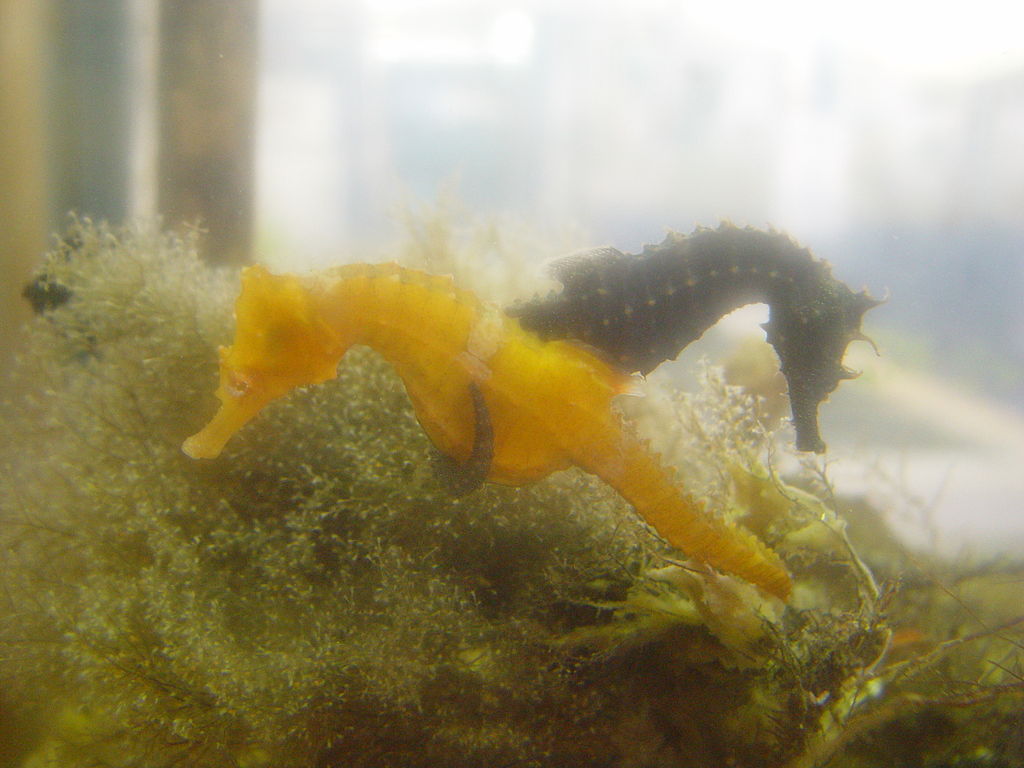
The desire for connection: seahorses bond for life, and every morning celebrate their permanent union with an extraordinary mating dance. Photograph: Gulf Specimen (own work), via Wikimedia Commons
David: Well, two questions arise for me from what you have said. One is that in terms of being a ‘meaning-creation centre’, meaning always seems to me to come about as a response to the world: to something in the world that presents itself to me and speaks to me, as it were. And secondly, we have been talking about cells and living things, but what about things which we call inanimate? What is the position of, say, a rock, which biologically speaking we don’t regard as alive?
Andreas: In response to your first question, what I have tried to say is that this desire to make connections comes to us as ‘a call’. Something touches us, calls to us with its desire to love, and it is up to us to love back. So yes, it is a matter of response.
On the matter of inanimate beings, this is actually a point on which I am in the process of changing my attitude. Until quite recently – a year or so ago – my work was very much about the specific quality, the passion for self-identity, which life gives to the world. So there was a kind of unspoken threshold between living and non-living things. But I am beginning to see that everything tends towards, or longs for, connection. This applies even to a rock, which seems quite inert. But even that rock is composed of elements of matter which want to cling each to another, so we can see in it the same basic striving towards a deeper experience of oneself through an other, which is the core of our aliveness.
So for me, the idea of ‘organism’ now is a way of making explicit a principle which underlies everything. I think we cannot talk about dead matter, and we cannot even say that matter is not animate. So there are no borders, and there are no ‘subsets’ of beings. And this is really good, because if you have a subset which seems to be totally different, there is always discrimination of one by the other, and some form of violence.
David: Why do you say “violence”?
Andreas: Because we say: “This subset is alive, so we must save it. But this subset is not alive, so we can exploit it.” Things are totally different if we see that everything is actually expressing the same underlying principle. If we can be so radical as to say about ourselves that because ultimately we are just made from all these chemicals, then there is a sense in which we, too, are inanimate – that we are not alive. Then we find the world in ourselves and ourselves in the world. We find ourselves in a continuous exchange process with the world.
And in this process in which everything is expressing itself by transforming itself from ‘other’, I think we can say that everything has a kind of speech. The eco-philosopher and poet Gary Snyder has put this very beautifully: “the world is our consciousness and it surrounds us”. By saying “the world is our consciousness”, he is pointing to the fact that finding meaning is a process whereby what is ‘out there’ is translated into our inner world of imagination and feeling. And at the same time, it remains ‘out there’ and surrounds us. Another paradox.
David: So much of what humanity does – the way we interact with the world – seems to be strictly utilitarian, the only consideration being how much we can exploit our resources and make money. Your work would perhaps lead us to put more value on ourselves and on our surroundings, so that we behave in a more expressive and constructive manner?
Andreas: We all have the capacity for connection because we are all beings and we are actually enacting this process the whole time. In fact, we could not be alive – even physically – without having this capacity. But the pressure of mainstream culture is to try to exercise the exchange process within conscious intention – and with that something else comes into play. I call it ‘control’ or ‘enclosure’. This is not the free exchange of transformation, but rather, the desire to avoid the issue of transformation because there is always an aspect of transformation which involves death. The giving up of identity means that we have in some way to die. So there is a desire to get out of this game and control what is going on. There are degrees of control, and some people are very good at it: and it is these people who are trying to push this wonderful, life-giving world to the wall at the moment.
However, it is a fiction that we can get out of this game of exchange, because ultimately, we will all die and end up being eaten by micro-organisms. So I do not see the problem as one of technology; the problem is the fiction of control, and the idea that we can control our exchange with the world in our own favour.
David: This is especially interesting when we consider some of the new ideas that are around at the moment. For instance, Yuval Noah Harari, in his bestselling book Homo Deus, talks about the new human being who is totally in charge of their own destiny. And the possibility is increasingly aired that we could in the near future live for a very long time and put off death.
Andreas: There are also people like Marvin Minsky, who worked in IT, and others who are waiting for the singularity [/] so that they can upload their ‘software’ onto a computer and live forever. This is so naïve, because it relies completely upon the idea that I have been arguing against – that life is somehow machinery. To think that there is software inside of us which is running on hardware is to miss the point.
David: Can you explain why exactly?
Andreas: Because the software is the hardware. Every internal experience is at the same time a confirmation of body, and you cannot detach it from that. And body is continually exchanging with our environment. So our identity is not laid down in the build-up of a machine; what is going on is this strange situation in which self exists on matter, and matter is totally fluid. It is constantly going through us; when we eat, we exchange food with our body, and when we breathe out, it’s our matter, our carbon, which goes out. So I am very sceptical about all these sci-fi ideas. They are just fantasies which help to push technology forward – and I don’t even think that the direction in which they push it is necessarily helpful.
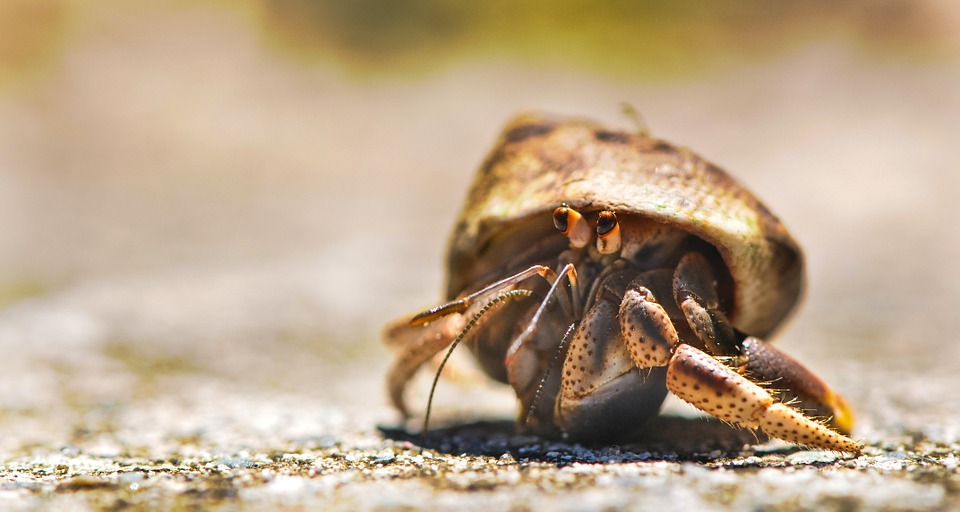
Mutuality: the hermit crab has no shell of its own, and has to use those discarded by others. As it grows throughout its life, it will change shells several times. Photograph from Stokpix
Making Kin
David: So given all this, how do you view the idea of ‘stewardship’ that is found within the religious traditions? There is no doubt that humanity is the dominant species on the planet now, but many people reject the idea of stewardship because it seems to reinforce our oppressive relationships with other beings. But it seems to me that if we were to view stewardship as an act of service to something that is beyond ourselves, but – at the same time, as you have mentioned – also intrinsically ourselves, then we would perhaps be in a more balanced situation.
Andreas: I am actually one of those people who don’t like the idea of stewardship very much, because to my mind it implies an inbuilt hierarchy. The steward is someone who knows what needs to be done, and I would suggest greater modesty and acknowledgement of the fact that we don’t know. You mention the word ‘service’, and I think that the word ‘steward-service’ would be much better. Or I would say, just be a better companion. Or, as Donna Haraway [/] suggested: “Make kin”. The full title of her very important book is, Staying with the Trouble: Making Kin in the Chthulucene, and she mentions trouble because she knows that this is not a recipe for an untroubled life. Making relationships is not always nice or easy, as we all know from our relationships with our family.
This is why I always come back to the idea of the ‘commons’ because we need to partake in the world in a way which is fruitful and also particularly human. I would agree that we have a human way of being which is very special and very powerful, but why should we not try to put this human way into service according to this direction of yearning for more connectedness? To my mind, this could be the inspiration for a new kind of culture. Let’s build a human culture which is about the practice of love, about answering the ‘call’, about the yearning to be connected. It would be a totally human answer to the question about the purpose of existence. It would not be ‘back to nature’ because it would not be about nature as such, but about opening up ‘spaces to be’ for others and therefore for ourselves.
This would also be about opening up spaces for the unknown, and this is not stewardship, because opening up ‘space to be’ is very different from the idea of taking care of things. You cannot take care of something which has not even emerged. But within this scenario, things will without doubt emerge, because this way of living is all about forging new connections and allowing new degrees of freedom to come into being.
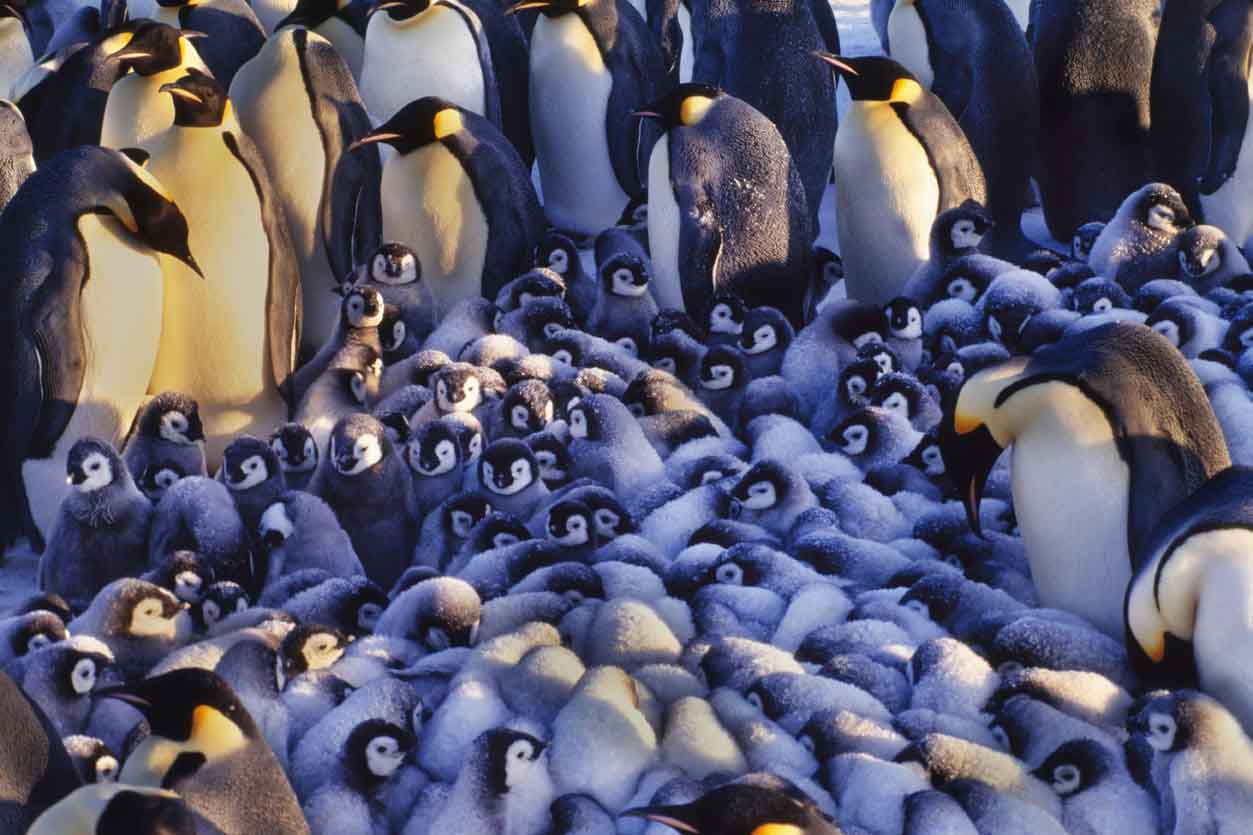
Mutuality: emperor penguins breed in Antartica during the winter months, and succeed only by gathering in huge numbers and working together. Young chicks are kept in a communal crèche for warmth and protection. Photograph: Mint-Images – Frans Lanting, taken at the Weddell Sea, Antartica
David: How do you think we can move towards a greater feeling of connection with things?
Andreas: Well, we are already doing this on many levels at the moment. We are doing it at an elemental level in the way our bodies work, and we are doing it at a human level, in that we are all trying to get in touch with other human beings and have relationships. But we are not yet doing it at the level of culture – only at the level of subcultures.
David: Do you think that the dominance of the human race on the planet at the moment makes this all the more important? There are so many human beings now and we are taking up the space that used to be occupied by other species.
Andreas: Although individually we have a vast range of experience and choice, and we can really be creative in developing new ways of relating and new forms of culture, as a biologist I can see that we are also constrained by being a species. We are inside species dynamics. We are a species which is very successfully living on the resources of its habitat, and we are using them up until we reach a point when we will totally crash. This is a normal biological situation. We see it in bacterial cultures, which multiply exponentially, and then… well, there are different models. You can have a plateau situation where the population is stable for a while, but it never remains the same for very long and there will always be a point when the population starts to decrease very quickly. I have come to accept that this is the process we are going through, and so there will at some point be a very interesting time of transformation when we will need this possibility of freedom to imagine, to envisage new models to create a new society.
What humanity is doing from a biological point of view makes sense; no species would behave differently. If it is possible for a species to exploit resources, then it will do so, and it will not stop, just as we are not stopping. I am speaking here as a biologist. I don’t want to say that we are determined by pure biological laws – I don’t actually believe in pure biology. But we should not forget what it tells us.
David: What does it mean, not to believe in a ‘pure biology’?
Andreas: I mean that we cannot talk about reality in any context without thinking about fundamental questions, such as: why does life unfold in this direction? What is its purpose? What is our purpose as human beings? So, we cannot do biology without talking about metaphysics, or the divine, or God, or being mystics or whatever. One of the things I have talked about is the need for a poetic vision of science – a science which includes the reality of feelings and emotions. But I am not trying to create an interdisciplinary theory as such; it is more that I am trying to find a convincing structure for experience. I find that this idea of reality as a commons in which there is a desire to be more deeply connected works at every level, and it also fits with my personal experience.
David: The implication of what you are saying is that we need an education in what it means to be a human being, so that we can increase this connectivity.
Andreas: Yes. And we don’t have this at all. We only have a kind of negative education which is delivered through the mainstream system, and this is not even an explicit education which tells us how things really work, and what we need to do to become successful human beings. But if we were to pursue this vision of a new kind of culture, then we would need to explore alternative ways of understanding foundational principles, and develop an education in what I suppose we could call ‘the art of living’. And this is a truly huge task, because it means that we have to re-evaluate the last 2,000 years of human thinking. It is perhaps even more radical than the changes brought about during the Renaissance, because that was really just a change in Western thinking.
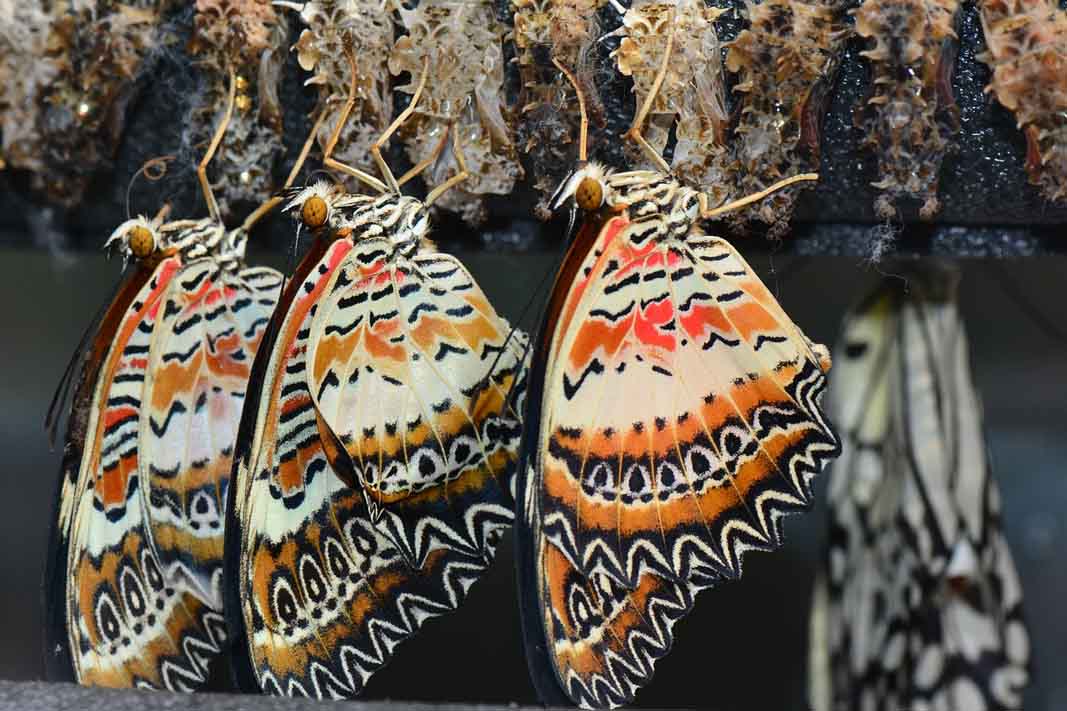
Metamorphosis: Leopard Lacewing butterflies emerging from their chrysallis. Photograph: Jondalar Schnurr
Freedom and Transformation
David: One of the things you have spoken about in all your books, especially The Biology of Wonder, is the unique capacity of poetry to express the kind of paradoxical truths you see in nature. So I have brought you a poem by the Persian poet, Jalāl al-dīn Rūmī [/], which my friend Alan Williams translated for me, because it seems to me to encapsulate many of the things we have been talking about today:
I died as mineral and became a plant,
from plant I turned into a living creature.
I died as animal, became a human –
Why fear? – when did death ever make me less?
The next time, I shall die to being human,
and lift my head to soar among the angels.
I must escape from angel states as well:
for “all things pass away except His Face”.
Again, I’m sacrificed from angel states:
I shall become what mind cannot conceive.
Then I become non-being, which informs me
organically: ‘To Him shall we return’.
(For some notes on this new translation, click here)
Andreas: That is beautiful. The process of one thing constantly transforming into another is what we experience as our life. The individual is always the whole, and vice versa: the whole, the total, becomes visible in each individual existence. Life is about negotiating this paradox. This is why I feel that we can only approach reality by granting it a poetic dimension – a mystical dimension – because if we try to make the process linear, then we destroy it. Great poetry as a gesture is that total, sharp individuality which simultaneously shows the whole as it is, holding both sides of the paradox together.
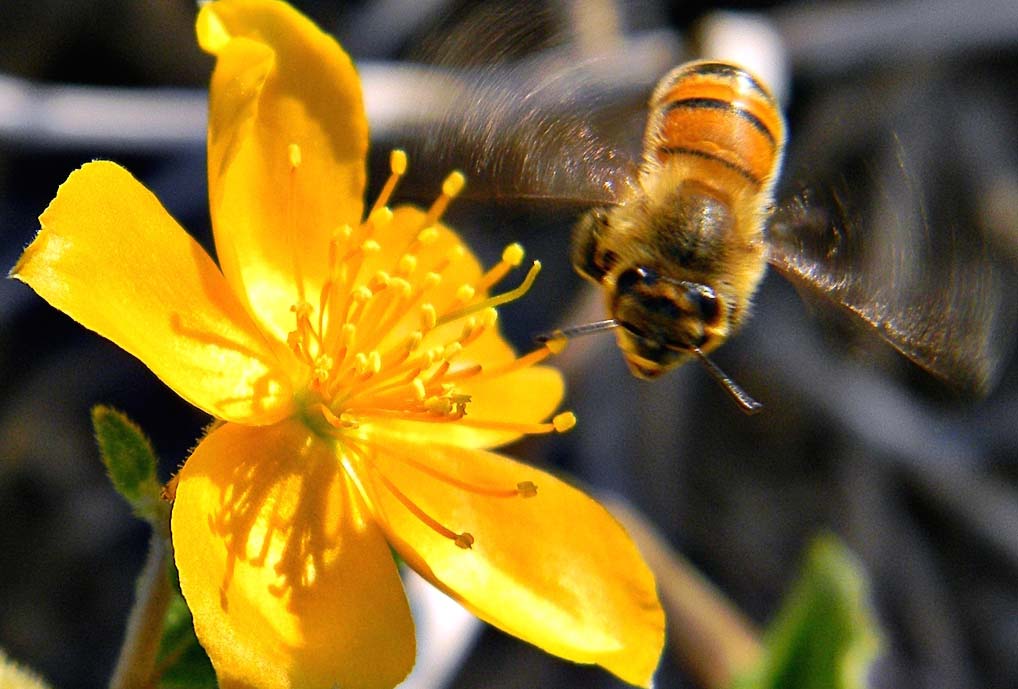
Expressing joy: a honey bee performs a dance in response to a delicious flower. Photograph: Bob Peterson from North Palm Beach, Florida, via Wikimedia Commons
David: In your books, you talk about the feeling of moving in this context as ‘freedom’. Can you say more about that?
Andreas: What I am talking about is not the total freedom from any constraint: in a way, it is quite the opposite. The German poet, Schiller, has thought a lot about this; he talks about freedom being “an individual way to cope with necessity”. So here again, we have the idea of the relationship between the individual and the whole, because ‘the whole’ is necessity. You cannot escape from the whole.
Schiller went on to say something further – he said: “Freedom in necessity is beauty”. This is one of the reasons why you can only have access to reality through the poetic.
David: It has always struck me how peculiar this is – how any understanding of wholeness or universality starts with the word ‘I’. You cannot even have the concept of wholeness unless you first have a sense of ‘I-ness’.
Andreas: Indeed. And this very much undermines the kind of ‘purification policy’ of modern science, which maintains that there can be no universal truth as long as there is an ‘I’. Therefore the aim is to get rid of the ‘I’ – meaning, subjectivity. But it is so important to understand that the individual and the whole are inextricably linked to one another. Our culture actually presents us with two options for cutting off the connection between them; we can either be a materialist or an idealist. But the truth is that we can only access the whole as an individual. So there is a sense in which our relationship with it is always impure; but on the other hand, it is always accessible because there is no doubt – as we have just said – that we do access the whole as an individual.
David: But is it really ‘impure’? We have already discussed the fact that the individual is nothing other than the whole in reality.
Andreas: I use the word ‘impure’ because there is a tendency within science and philosophy to think like this, and therefore, as I say, to try to purify truth. But what I mean is that the perception of the individual comes from a certain angle, or through a certain crack in the vessel, so it shows the whole from a particular perspective. And, in a way, this destroys the universality of the vision, which is why we use the term ‘impure’. On the other hand, the individual cannot do anything else but reveal the whole. This does not mean that there is no universality, but that it appears in facets, like billions of poems.
This is not a problem for me. But if you have a purifying mindset, then you have to try to get rid of one of these poles. And this is actually what our civilisation has done, and this brings us back to the idea of control and power. If we want the vision to be purified, then we want to control it, and this is total power. But if we accept that the universality always has an individual flavour, then we can let go and admit what is actually happening before our eyes. We can accept that we are limited and small, and although what we experience is the whole, it is our whole, and as such one of many different versions.
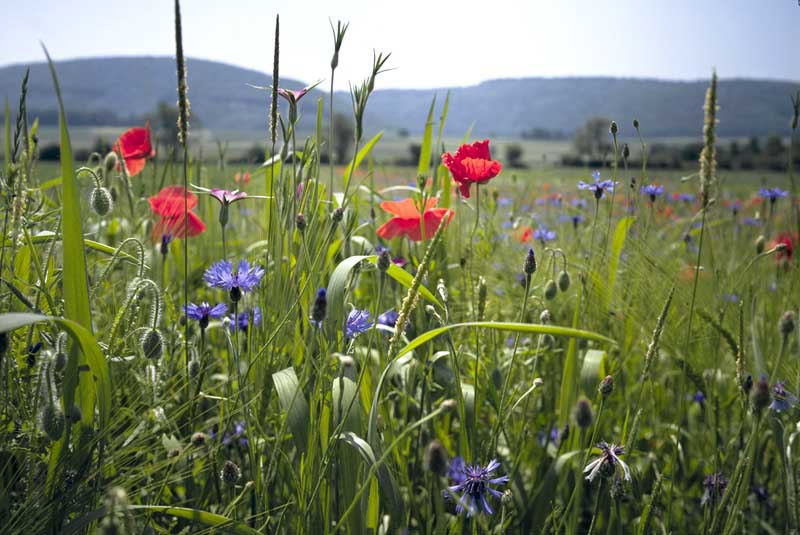
Biodiversity: red poppies, blue cornflowers and pink corn cockles by the side of a road in Germany. Photograph: Brändle, Agroscope (Agroscope Reckenholz-Tänikon), via Wikimedia Commons
Image Sources (click to open)
Banner picture: Andreas Weber and seven-year-old Max discover wild irises in a meadow in Crawinkel, Germany. Photograph: Martin Schutt, courtesy of Picture-Alliance.
First insert picture: Francisco Varela. Photograph: https://www.mindandlife.org
Thumbnail image on cover page: mute swans intertwining their necks during a mating dance, Mecklenburg-Western Pomerania, Germany. Photographer: Volker Lautenbach [/].
Other Sources (click to open)
Books in English by ANDREAS WEBER:
- Enlivenment: Towards a Fundamental Shift in the Concepts of Nature, Culture and Politics, Heinrich-Böll-Stiftung 2013;
- The Biology of Wonder: Aliveness, Feeling, and the Metamorphosis of Science, New Society Publishers 2016;
- Biopoetics: Towards an Existential Ecology, Springer 2016;
- Matter and Desire: An erotic ecology, Chelsea Green Publishing 2017.
FRANCISCO VARELA and HUMBERT MATURANA: Autopoiesis and Cognition: The Realization of the Living, R. Reidel Publishers 1979.
GARY SNYDER quote from Practice of the Wild, Counterpoint, new edition 2010.
YUVAL NOAH HARARI: Homo Deus, Vintage 2017. See also RICHARD TWINCH: “Three Transitions” in Beshara Magazine, Issue 3.
DONA HARAWAY: Staying with the Trouble: Making Kin in the Chthulucene (Experimental Futures), Duke University Press 2016.
Poem by Jalāl al-dīn Rūmī translated for us by Professor ALAN WILLIAMS. His new parallel text edition and translation of Rūmī’s Masnavi will be published by IB Tauris in six volumes, with the first two coming out in 2018. For his introduction to the poem, click here.
Further Exploration:
Seahorses: to watch some of the beautiful dance they perform together, see https://www.youtube.com/watch?v=q2e_-lRL_ms
Hermit Crabs: for an insight into an extraordinary degree of co-operation they exhibit during in shell-exchange, see https://www.youtube.com/watch?v=f1dnocPQXDQ.
For more on Jalāl al-dīn Rūmī, see the Mawlana Rumi Review
Email this page to a friend
FOLLOW AND LIKE US
——————————————
——————————————
——————————————
FOLLOW AND LIKE US
If you enjoyed reading this article
Please leave a comment below.
Please also consider making a donation to support the work of Beshara Magazine. The magazine relies entirely on voluntary support. Donations received through this website go towards editorial expenses, eg. image rights, travel expenses, and website maintenance and development costs.
READ MORE IN BESHARA MAGAZINE
The Century of Complexity
An interview with Dr Vasileios Basios on new ideas in science
Ayurveda: A Medical Science Based on Consciousness
How India’s ancient system of healing recognises the unity of the body and the mind
The Unity of Bee-ing
An interview with Heidi Herrmann about the work of The Natural Beekeeping Trust in preserving our precious population of bees
Three Transitions
Richard Twinch contemplates the nature of cultural change
READERS’ COMMENTS

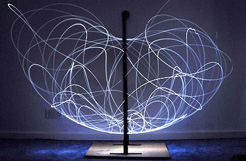
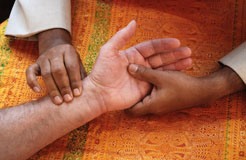
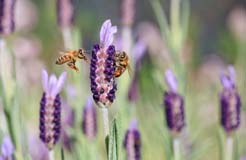
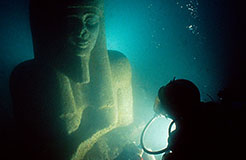
Ah yes, the beautiful collision (fusion) of biology and philosophy that I like to call ecotheology. }:- a.m. (anonemoose monk)